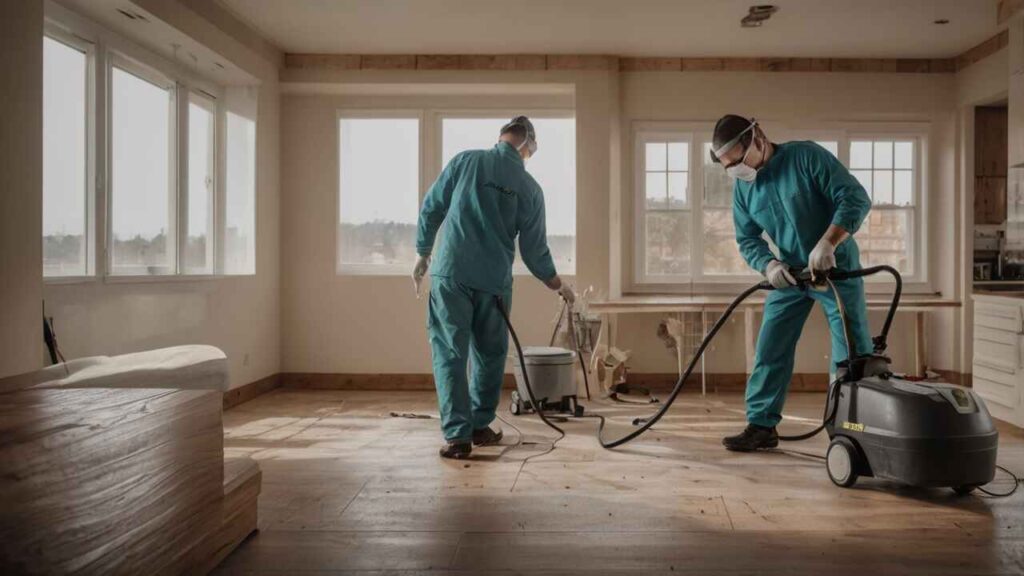If you’ve lived in North Carolina long enough, you already know how unpredictable our weather can be — one week it’s hot and sticky, the next it’s raining sideways. But what often goes unnoticed during these wild seasonal shifts are the silent destroyers hiding beneath your floorboards: termites. The kind of quiet, steady threat that doesn’t scream for attention until it’s way too late.
And trust me, a termite inspection North Carolina homeowners often postpone is usually the most expensive mistake they’ll ever make.
I’ve seen it myself — a neighbor in Raleigh once ignored those soft clicking sounds behind his wall (thought it was just an old house thing). Six months later, the damage estimate from a professional termite control team was almost $8,000. The worst part? The structural repairs weren’t even covered by insurance. That’s how these tiny creatures can turn a dream home into a repair project overnight.
- Understanding the Hidden World Beneath Your Home
- The True Cost of Ignoring Termite Damage
- Professional Tools and Techniques You Should Know About
- Signs You Might Already Have a Termite Problem
- Why Prevention Is Always Cheaper Than Repair
- A Broader Look: More Than Just Termites
- Future Pest Challenges Worth Preparing For
- Real-Life Case Study: A Family’s Close Call in Greensboro
- A Simple Takeaway: Don’t Wait for Damage
- FAQs
Understanding the Hidden World Beneath Your Home
Here’s the thing about termites in NC — they’re not just insects. They’re engineers of destruction. The most common type here is the subterranean termite, known for creating underground tunnels that lead straight into the wooden foundations of homes. In cities like Greensboro and Wilmington, where humidity runs high, these pests thrive quietly beneath porches, crawl spaces, and basements.
What’s wild is how fast they can multiply. A single colony can contain hundreds of thousands of termites, all chewing 24/7. According to Dr. Michael Waldvogel, an urban entomologist at NC State University, “Once a colony is mature, you’re looking at a potential wood consumption rate that can literally hollow out beams in just a few months.”
Scary? Absolutely. But preventable? Definitely — with reliable and professional termite inspection North Carolina homeowners trust, the kind that doesn’t just look for signs but focuses on stopping infestations before they begin.
The True Cost of Ignoring Termite Damage
Most people underestimate termite damage cost until it hits their wallets. A national study by Orkin estimates that U.S. homeowners spend over $5 billion annually on termite-related repairs. North Carolina, with its moist climate and mix of old and new constructions, contributes a big chunk to that figure.
Charlotte alone has seen a rise in wood damage claims, partly because modern homes are built with more wood-based materials and fewer natural barriers.
What makes it tricky is that termites don’t just eat — they weaken. They compromise the integrity of walls, floor joists, and even the roof framing. And once you find hollow-sounding wood or bubbling paint, it’s already late. At that point, you’re not just paying for treatment; you’re also footing the bill for reconstruction.
That’s why preventative termite treatment isn’t just a suggestion; it’s a smart homeowner move. It’s like changing your car oil — not glamorous, but necessary to prevent a breakdown that could cost ten times more.
Professional Tools and Techniques You Should Know About
Modern pest experts don’t just show up with sprays anymore. They bring precision gear and scientific methods. For instance, many Raleigh termite control specialists use infrared scanners to detect moisture and heat variations inside walls — a subtle way to find colonies before any visible damage.
Then there’s baiting technology, like Sentricon systems, which use cellulose-based traps infused with slow-acting termite growth regulators. These don’t kill instantly; they spread through the colony, wiping it out at the root.
Even small details matter. I’ve seen reliable pest control teams use borate-treated wood replacements during repair to prevent re-infestation. It’s these little touches — often invisible to the homeowner — that define trusted and expert service providers.
If you’re looking for top-rated professionals in your area, the guide on Expert Pest Control Companies in North Carolina lists some of the best and most reliable names across the state. It’s worth saving that link before the next storm season rolls in.
Signs You Might Already Have a Termite Problem
It’s surprising how subtle the first warning signs can be. Here’s what NC homeowners should watch out for:
- Mud tubes near foundation walls or crawl spaces.
- Hollow-sounding wood or sagging floors.
- Tiny, discarded wings near windowsills.
- Blistering paint that looks like water damage.
These symptoms often appear long after termites have started feeding. That’s why routine termite inspection North Carolina homes rely on should be scheduled at least once a year — preferably before spring, when colonies are most active.
Why Prevention Is Always Cheaper Than Repair
It’s not about paranoia; it’s about planning. Professional pest inspectors often compare termite prevention to dental checkups: skip one or two, and you’ll end up with cavities — or in this case, collapsing joists. Preventative inspection plans usually cost a few hundred dollars a year, while full-blown repairs can climb into five digits.
Many Charlotte and Wilmington homeowners have realized this too late, often calling experts only after visible damage. The smart ones schedule inspections along with their annual HVAC or roof maintenance — just another line item in protecting their biggest investment.
A Broader Look: More Than Just Termites
Of course, termites aren’t the only villains in North Carolina homes. The state’s humid climate is practically paradise for every pest species imaginable. You can read about it in “A City-by-City Guide to Mosquito & Tick Control in North Carolina,” which breaks down how pest pressure changes between coastal, urban, and mountain zones.
Then there’s “Essential Rodent & Wildlife Exclusion Strategies for NC Homes,” a must-read if you’ve ever heard scratching in your attic at 3 a.m. (and tried convincing yourself it was just the wind).
And don’t even get me started on cockroaches — they’re stubborn survivors. The post titled “Expert Tips for Eradicating Stubborn Cockroach and Ant Infestations in North Carolina” offers practical advice that actually works.
If you’re unsure whether DIY sprays are enough, check out “When to Stop Spraying and Call North Carolina’s Trusted Pest Control Experts.” Because sometimes, you just need to hand it over to the pros.
Future Pest Challenges Worth Preparing For
As pest trends shift, homeowners will need to stay alert to newer threats beyond the usual suspects. Bed bug resurgence in urban condos, invasive spotted lanternflies damaging landscaping, and the rise of air-duct nesting rodents are emerging issues worth paying attention to. Even eco-friendly treatment methods — like heat-based extermination and pheromone-based traps — are gaining traction as safer alternatives for homes with kids or pets.
These evolving topics will soon shape how North Carolina homeowners think about protection and maintenance. So keeping up with the latest insights from the Pest Control category on ProServiceTips will definitely keep you a step ahead.
Real-Life Case Study: A Family’s Close Call in Greensboro
A Greensboro family, the Collinses, once thought the soft creaking in their living room floor was just normal settling. But after their toddler tripped over a sunken board, they called in a professional inspection. The team discovered an active subterranean termite colony spanning beneath three rooms. The repair required full floor replacement, substructure reinforcement, and chemical barrier installation — a $12,500 ordeal.
The silver lining? After treatment, the inspectors installed a monitoring system that allowed the family to track soil activity from an app. Now, every six months, they get peace of mind without waiting for bad news.
That’s the level of expert termite inspection North Carolina residents deserve — not just extermination, but long-term security.
A Simple Takeaway: Don’t Wait for Damage
If you take one thing from this article, let it be this: You can’t see termites until it’s too late, but you can stop them before they win. A quick call to a local, trusted pest professional could literally save your home’s structure — and your bank account.
To explore more trusted companies and helpful guides, visit ProServiceTips.com — it’s packed with practical advice and professional insights that every NC homeowner should know.
FAQs
1. How often should I schedule a termite inspection in North Carolina?
At least once a year. However, if your home is near wooded areas or has prior damage, consider a biannual inspection plan to catch early activity.
2. Are termite treatments harmful to pets or children?
Most modern treatments are pet-safe once dried. Always choose trusted professional termite control services that use low-toxicity or eco-certified products.
3. Can homeowners prevent termites without professional help?
DIY methods like keeping wood dry and sealing entry points help, but they can’t replace the precision tools and trained eyes of professionals. Prevention works best when experts are involved.
If this post helped you understand the real importance of termite protection, share it on your social media using the buttons below — someone in your circle might need the reminder before it’s too late.


